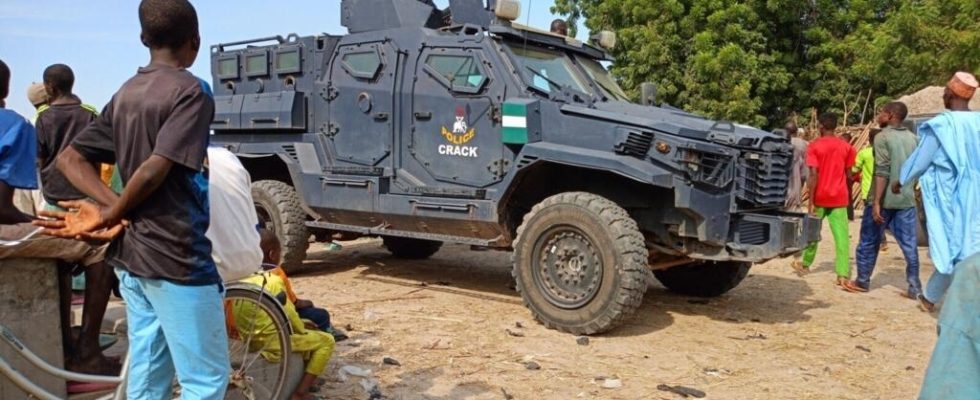Faced with insecurity and gangs, Nigeria is experiencing a new peak in the recruitment of militiamen to swell self-defense groups. The total number of members of these groups is difficult to estimate.
2 mins
The governor of Zamfara this week announced the creation of a new force of 2,600 men to combat criminal gangs in the northwestern state. Nigeria. In Kano State, the governor has just launched a training program for 2,500 people. In that of the Plateau, bereaved in recent weeks through deadly attacks, the governor wants to strengthen the local security system. And in the coastal state of Delta, in the south, the governor announced a force of 2,400 militiamen to counter the wave of kidnappings. This use of self-defense groups in Nigeria is not a recent practice. It boomed with the Boko Haram insurgency in the 2010s.
Faced with the multiplication of security challenges throughout the territory: kidnappings, banditry, conflicts between breeders and farmers, the federal police, poorly equipped, poorly trained, poorly paid and not numerous enough, are overwhelmed, recalls analyst Emeka Okoro from the SBM Intelligence firm based in Lagos: “ These militias are a consequence of the loss of confidence in the national security system. Nigerians are looking for an alternative to protect themselves. The Nigerian security system is, in fact, more regime protection than national protection. National security forces are concerned with securing the men at the top, and less with securing ordinary citizens. Self-defense groups, militias, are a way to fill this void. »
Recruited locally, members of these militias are seen as more motivated to restore security in their own communities. But in a report on the phenomenon, in 2022, International Crisis Group highlighted the risks of using this system. And called for more regulation to avoid communitarian abuses, violations of human rights or exploitation by local elites.
